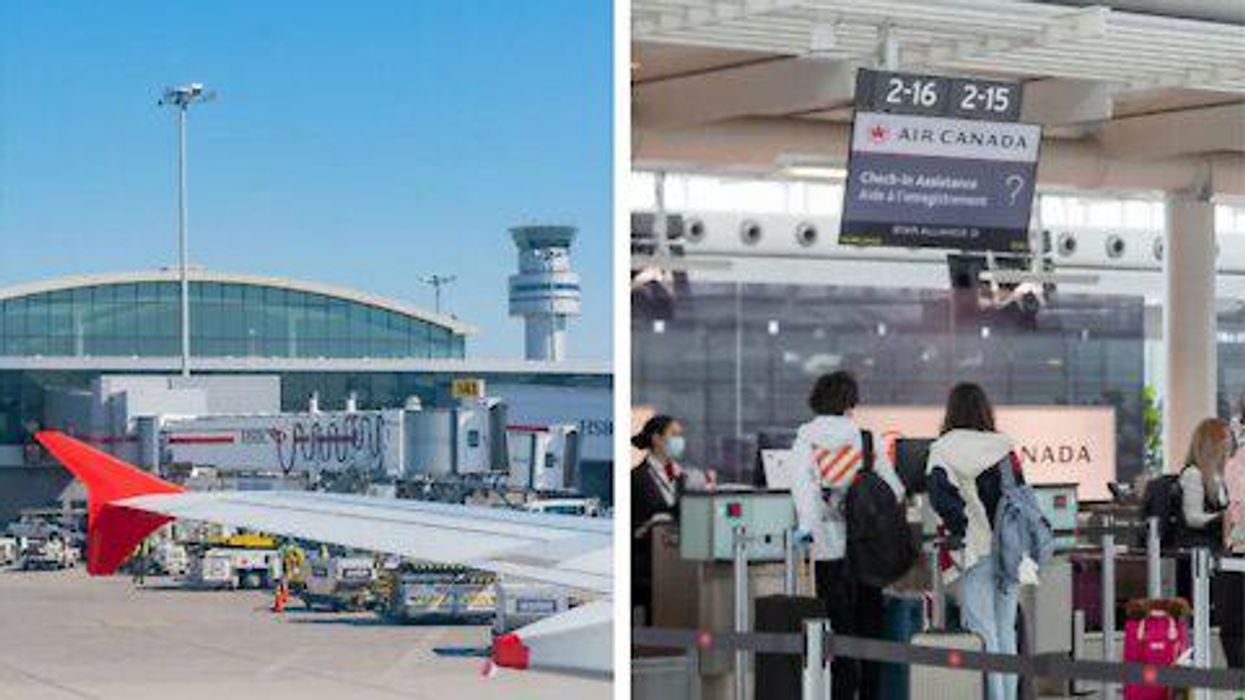The 'First Phase' Of Canada's New Travel Rules Will Kick Off On July 5
Fully-vaccinated travellers won't have to quarantine for two weeks, among other things! 👇
The "first phase" of Canada's new travel rules will begin on July 5, the federal government announced during a press conference on Monday.
Speaking to reporters on June 21, Health Minister Patty Hajdu confirmed the updated measures will impact "fully vaccinated travellers who are permitted to enter Canada" only.
Starting from July 5 at 11:59 p.m. EDT, fully vaccinated travellers who are eligible to enter Canada will not be required to quarantine for 14 days or complete a day-8 COVID-19 test. They will also be allowed to skip Canada's mandatory hotel stay.
That said, all travellers are still expected to have a suitable quarantine plan, in case they do not meet the necessary requirements upon their arrival in Canada.
They must also submit COVID-19 related information to ArriveCAN in advance of their arrival, and meet all of the pre- and on-arrival testing requirements.
What about people who are not yet fully vaccinated?
During the same conference, Hajdu also confirmed that measures for Canadians and travellers who are not fully vaccinated will not change and those people must "continue to adhere to the current testing and federal quarantine requirements."
Transport Minister Omar Alghabra, who was also part of Friday's conference, explained that essential travellers who are not fully vaccinated (but who are still using Canada's airports) will be separated from fully-vaccinated passengers.
He didn't provide specific details about what this could look like, but he said the feds are "working with [the travel] industry to establish separate lines for these two categories of traveller."
More details about exactly who qualifies as a "fully vaccinated traveller" can be found here.
Does this mean fully vaccinated Canadians can travel abroad?
While it has become easier for some Canadians to return home after they've been abroad, the country's travel advice hasn't changed.
The federal government continues to "strongly advise" against all non-essential international travel, including for those who've been fully vaccinated against COVID-19.
That said, being fully vaccinated will make it simpler to go abroad, too. This is because some countries are currently allowing entry to fully vaccinated travellers, although it's worth noting that these softer measures could change at any time!
- Reopening The Canada-US Border Was Discussed At G7 Summit ... ›
- Changes To Canada's Travel Restrictions: Here's What You Need To Know - Narcity ›
- Fully Vaccinated Americans Still Can't Come To Canada & This Is Why - Narcity ›
- Lying About Vaccination Status In Canada Could Result In $750K Fines - Narcity ›
- Canada's New Travel Restrictions Are P*ssing Off Businesses Already - Narcity ›
- How To Use The ArriveCAN App: Here's What You Need To Know - Narcity ›
- ArriveCAN Help: This Super Simple Video Explains Everything - Narcity ›
- Canada's Travel Rules Change On July 5 & Here Are The Details - Narcity ›
- Non-Essential Travel In Canada Includes Social Events & Tourism - Narcity ›
- Canada’s New Travel Restrictions Are Causing Confusion Already - Narcity ›
- Fully Vaccinated Canadians Could Still Spend Hundreds On COVID-19 Testing - Narcity ›
- 6 Travel Perks You'll Get In Canada If You've Been Fully Vaccinated - Narcity ›
